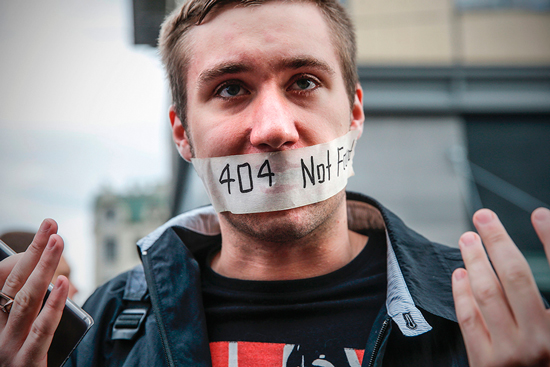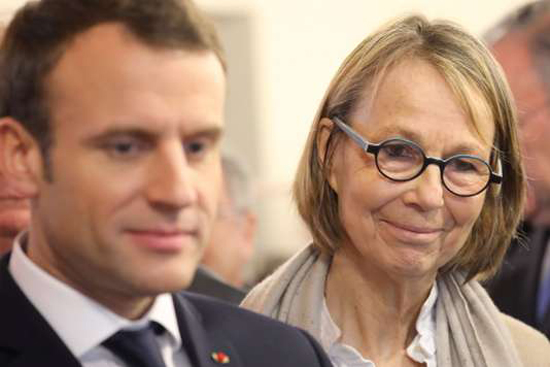No more free press: French news law forces media to cooperate with state in blocking ‘fake news’

France’s parliament has passed a new law, which aims to empower judges to order the immediate removal of “fake news” during election campaigns.
Critics argued that the controversial law against the “manipulation of information” could jeopardise democracy and censor the press.
The law, conceived by President Emmanuel Macron, was rejected twice by the senate before being passed by the parliament on November 22, 2018.
It is considered Western Europe’s first attempt to officially ban “false” material.
Macron has said he believes that the internet must be regulated.
“This is the sine qua non condition for a free, open and secure internet, as envisioned by its founding fathers,” he told the annual Internet Governance Forum in Paris in Nov. 2018.
Candidates and political parties will now be able to appeal to a judge to help stop “false information” during the three months before an election.
The law also allows the CSA, the French national broadcasting agency, to render the authority to suspend television channels “controlled by a foreign state or under the influence” of that state if they “deliberately disseminate false information likely to affect the sincerity of the ballot”.
This means France has the power to take on any foreign TV station suspected of spreading “false news”.
Anyone who violates the law could face one year in prison and a fine of €75,000.
The French government has been accused by both right and left wing opponents of trying to create a form of “thought police”.
French politician and former National Front (now known as the National Rally) member Julien Rochedy took to Twitter to criticise the law.
“That’s it, the fake news act was passed by parliament. The French state finally has a monopoly on truth and mass diffusion. It can legally censor anything it doesn’t like. The return of the 1930s,” he wrote.
The Former French Minister of Culture Françoise Nyssen said that the judicial procedure was established to stop the dissemination of fake news, as she introduced the anti-fake news law.
“The measures are to create a law about ‘confidence in information’ that will permit us to act very quickly when a fake news story goes viral, particularly during an election period”, said Nyssen in an interview with Journal du Dimanche on February 4, 2018.

Françoise Nyssen with Emmanuel Macron
“This new law will establish new responsibilities for the different media platforms, which will have to cooperate with the state and be transparent about their sponsored content. A judicial procedure will be put in place to allow rapid blocking of the dissemination of fake news once it has become manifest.”
French President Emmanuel Macron first proposed a law to counter “fake news” in his 2018 New Year’s speech to the press. This was seen as a veiled reference to Moscow-backed RT and Sputnik.
RT and Sputnik both have French-language websites and, during a joint press conference with his Russian counterpart Vladimir Putin, Macron accused them of publishing “defamatory untruths” and “deceitful propaganda”.
Since then, RT – formerly known as Russia Today – has launched a French-language TV channel, putting regulators on their guard.
Macron saw thousands of internal documents leaked online while running for president, which he blasted as an attempt at “democratic destabilisation like that already seen in the United States during the last presidential campaign”.
France’s government is not the first to fight fake news through the law.
In Germany, recent legislation puts social networks at risk of fines of up to €50 million if they do not remove “fake news” and “hateful posts” promptly.
Nyssen confirmed that in France also there will be “strong sanctions if there is an unwillingness to comply with the obligations of cooperation and transparency imposed by the law”. And she wanted to reassure that in her opinion, the law respects the freedom of the press.
“There is no freedom of the press, though, when there is bad money chasing good, that’s to say when fake news chases true information.”
“This new text protects against the risk of private censorship if the platforms act according to the correct rules. In addition, we will act strongly in the area of media education,” she said without giving specific details.
Comment: There can be no real freedom of the press when news organizations are forced by law to toe the government’s party line. The ridiculous accusation of alternative media disseminating “fake news” meant to undermine Western democracies is used as the pretext for this law, but the real driving force here is the French government seeking a finer order of control over the minds of its people.
yogaesoteric
February 13, 2019
